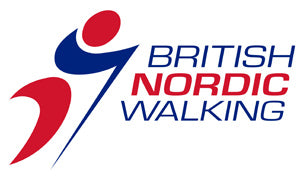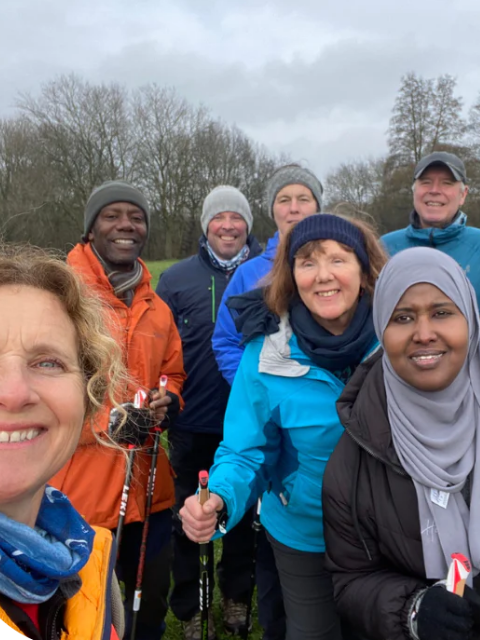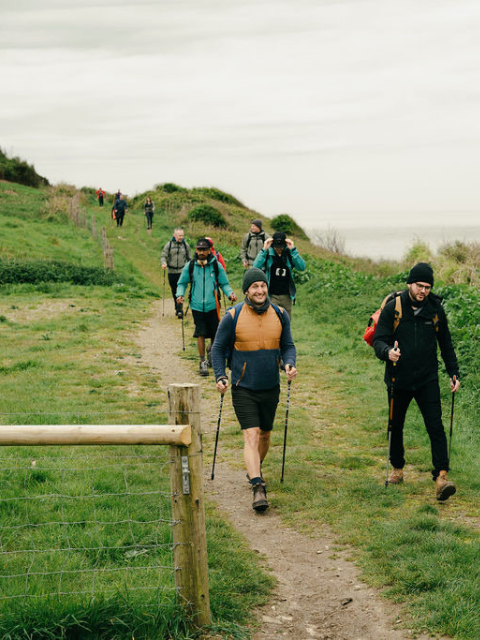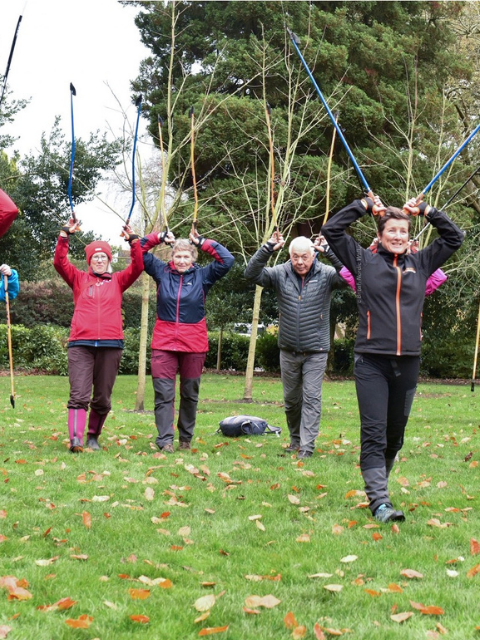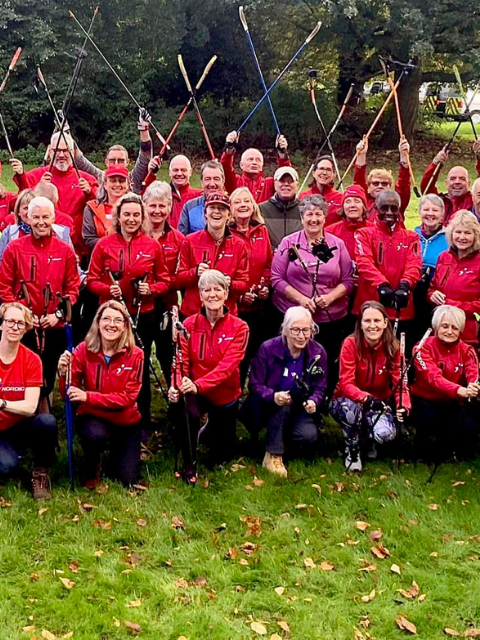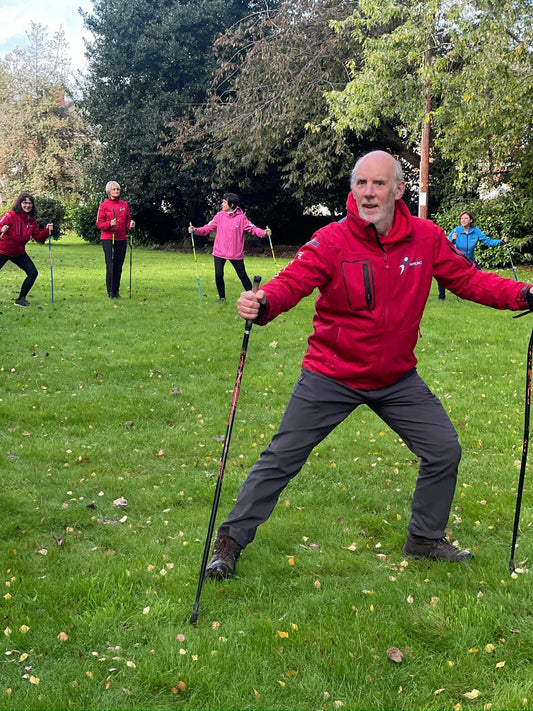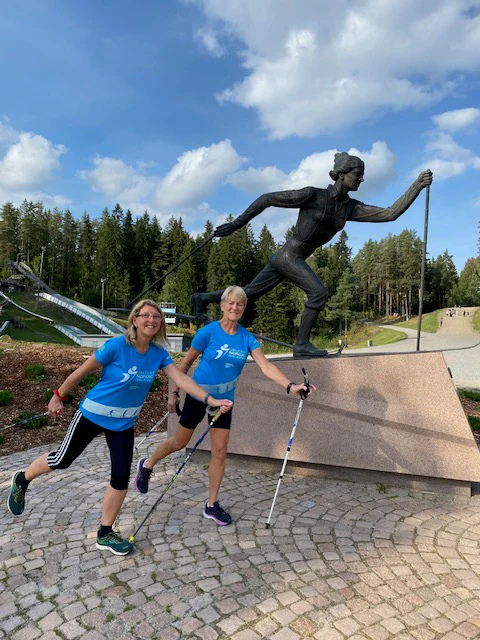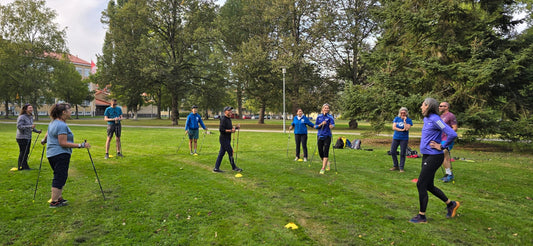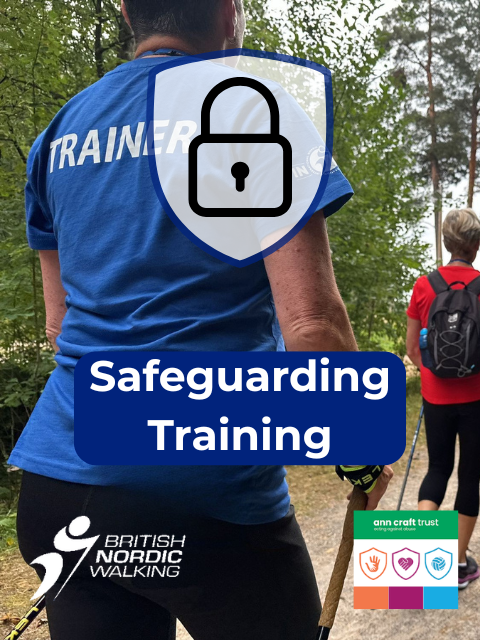BNW Safeguarding Policy
Introduction
We all have a responsibility to safeguard adults who are experiencing, or are at risk of, abuse and neglect.
This policy document outlines what adult safeguarding is and what to do if you have a concern. The safeguarding children and young people policy, for those under the age of 18, is covered in a separate document.
Policy statement
British Nordic Walking believes everyone has the right to live free from abuse or neglect regardless of age, ability or disability, sex, race, religion, ethnic origin, sexual orientation, marital or gender status.
British Nordic Walking is committed to creating and maintaining a safe and positive environment for all people involved in Nordic Walking. We acknowledge that safeguarding is everybody’s responsibility, and we are committed to prevent abuse and neglect through safeguarding the welfare of all adults and children involved. All individuals within the organisation –staff/contractors /volunteers/instructors/walk leaders - have a role and responsibility to help ensure the safety and welfare of adults and children. We strive to ensure an open, listening culture where people feel able to share concerns without fear of retribution.
British Nordic Walking accepts that we are required to fulfil our duty of care, which means that we must do everything that can be reasonably expected of us to help safeguard and protect people from harm, and to act when we suspect that someone is being harmed or is at risk of harm. Anyone working with or volunteering for British Nordic Walking will receive and have access to details of our Safeguarding Policy and Procedures documents. They receive information and training to outline their responsibilities to safeguarding.
What is adult safeguarding?
It is about:
- protecting an adult’s right to live in safety, free from abuse and neglect.
- people and organisations working together to prevent and stop both the risks and experience of abuse and neglect, while at the same time making sure that the adult’s wellbeing is promoted.
The official definition of “adult safeguarding” is working with adults with care and support needs to keep them safe from abuse or neglect. It is an important part of what many public services do, and a key responsibility of local authorities (Care Act 2014).
The safeguarding duties apply to an adult who:
- has needs for care and support (whether or not the local authority is meeting any of those needs)
- is experiencing, or is at risk of, abuse or neglect
- is unable to protect themselves from either the risk of, or the experience of, abuse or neglect, as a result of those care and support needs
Adults who fulfil these criteria are ‘adults at risk’.
People can have a need for care and support for a variety of reasons – for example they may have a learning disability, a physical disability, a chronic health condition or have a mental health issue. Such conditions may bring with them additional vulnerabilities, however having care and support needs does not mean that people are automatically adults at risk and need safeguarding.
Safeguarding adults is underpinned by:
- The Care Act 2014
- Mental Capacity Act (MCA) 2005
Categories of adult abuse identified in the Care Act 2014 are:
|
· Physical |
· Discriminatory |
|
· Sexual |
· Organisational |
|
· Psychological/Emotional/Mental |
· Modern Day Slavery |
|
· Financial and material |
· Domestic Violence |
|
· Neglect and act of omission |
· Self-Neglect – including hoarding |
Other types of harm that adults may experience include:
|
· Bullying, including cyber (by text, email, social media etc.) |
|
|
|
|
|
The six principles of adult safeguarding
The Care Act 2014 sets out the following principles that should underpin safeguarding of adults:
- Empowerment - People being supported and encouraged to make their own decisions and informed consent.
- Prevention – It is better to take action before harm occurs.
- Proportionality – The least intrusive response appropriate to the risk presented.
- Protection – Support and representation for those in greatest need.
- Partnership – Local solutions through services working with their communities.
- Accountability – Accountability and transparency in delivering safeguarding.
Wellbeing Principle
The general duty of a local authority, in exercising a function under this Part in the case of an individual, is to promote that individual’s well-being. The concept of ‘wellbeing’ is threaded throughout English and Welsh legislation and is related to the personal dignity, support and inclusion of all. The Wellbeing Principles can be found here: Care Act 2014 (legislation.gov.uk).
Capacity and decision making
Capacity refers to the ability to make a decision at a particular time, for example when under considerable stress. The starting assumption must always be that a person has the capacity to make a decision unless it can be established that they lack capacity.
People should be given information in formats that they understand to be able to make decisions.
In order to implement this policy British Nordic Walking will ensure that:
- Everyone involved with British Nordic Walking is aware of the safeguarding adult procedures and knows what to do and who to contact if they have a concern relating to the welfare or wellbeing of an adult.
- Any concern that an adult is not safe is taken seriously, responded to promptly, and
followed up in line with British Nordic Walking Safeguarding Adults Policy and Procedures.
- The well-being of those at risk of harm will be put first and the adult actively supported to communicate their views and the outcomes they want to achieve. Those views and wishes will be respected and supported unless there are overriding reasons not to.
- Any actions taken will respect the rights and dignity of all those involved and be proportionate to the risk of harm.
- We will commit to Making Safeguarding Personal. This means that adult safeguarding should be person led and outcome focussed. We will engage the person in a conversation about how best to respond to their safeguarding situation in a way that enhances involvement, choice and control, as well as improving quality of life, well-being and safety. Wherever possible we will discuss safeguarding concerns with the adult to get their view of what they would like to happen and keep them involved in the safeguarding process, seeking their consent to share information outside of the organisation where necessary.
- Confidential, detailed and accurate records of all safeguarding concerns are maintained and securely stored in line with our Data Protection Policy.
- British Nordic Walking acts in accordance with best practice advice, for example, from NSPCC, Ann Craft Trust and the Local Authority.
- British Nordic Walking will cooperate with the Police and the relevant Local Authorities in taking action to safeguard an adult.
- All Board members, staff, instructors, walk leaders and volunteers understand their role and responsibility for safeguarding adults and are advised to complete the appropriate level of safeguarding adult training for their role.
- British Nordic Walking uses safe recruitment practices and continually assesses the suitability of volunteers and staff to prevent the employment/deployment of unsuitable individuals in this organisation and within the sporting community.
- British Nordic Walking shares information about anyone found to be a risk to adults with the appropriate bodies. For example: Disclosure and Barring Service, Police, Local Authority/Social Services.
- Actions taken under this policy are reviewed by the Board on an annual basis.
Safe recruitment and safeguarding training
We want to make sure that all our volunteers and staff working for British Nordic Walking have the right skills and qualities to create a safe environment. All staff and volunteers will be subject to safe recruitment procedures and will also be updated with any relevant legislation, policies and procedural changes. Appropriate training will also be identified and offered, including safeguarding adults training.
Communication
The organisation will make available its Safeguarding Adults Policy and Procedures to all staff, volunteers, instructors, walk leaders and partner organisations.
What to do if you have concerns about an adult
British Nordic Walking staff, volunteers, instructors and walk leaders are not expected to be an expert in recognition of a safeguarding concern; however, all adults working, volunteering and participating have a duty of care to be vigilant and respond appropriately to suspicions of poor practice, abuse or bullying. They should also respond to any indication of abuse that may be occurring outside of the organisation setting.
This does not mean that it is your responsibility to decide if a situation is poor practice, abuse or bullying, but it is your responsibility to report your concerns to the British Nordic Walking Safeguarding lead.
If you are concerned about harm being caused to someone else, please follow the guidance below.
- It is not your responsibility to prove or decide whether an adult has been harmed or abused. It is, however, everyone's responsibility to respond to and report concerns they have.
- If someone has a need for immediate medical attention call an ambulance on 999.
- If you are concerned someone is in immediate danger or a serious crime is being committed contact the police on 999 straight away. Where you suspect that a crime is being committed, you must involve the police.
- Remember to be person centred/make safeguarding personal. If it will not put them or you at further risk, discuss your safeguarding concerns with the adult and ask them what they would like to happen next. Inform them that you have to pass on your concerns to your Safeguarding Lead. Do not contact the adult before talking to your Safeguarding Lead if the person allegedly causing the harm is likely to find out.
Remember not to confront the person thought to be causing the harm.
Our courses
-
INWA Nordic Walking Instructor Course
Regular price £499.00Regular priceUnit price / per -
Nordic Walk Leader Course
Regular price £145.00Regular priceUnit price / per£140.00Sale price £145.00 -
Balance and Coordination Course
Regular price £45.00Regular priceUnit price / per -
Convention 2025
Regular price From £103.00Regular priceUnit price / per -
New Parkinson’s Instructor Course – Learn, Support, and Transform Lives
Regular price £40.00Regular priceUnit price / per -
INWA Teaching Children & Teens to Nordic Walk Course - DEPOSIT
Regular price £50.00Regular priceUnit price / per -
Safeguarding Adults in Sport - Ann Craft Trust Online Course
Regular price £22.50Regular priceUnit price / per
